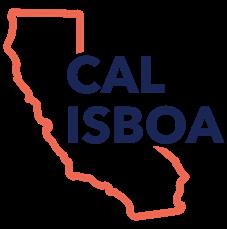




Contributors:
Grace Chan Partner | San Francisco
Jordan Carman
Associate | San Francisco
Hannah Dodge Associate | San Francisco
Christopher Fallon Partner | Los Angeles
Stephanie Lowe Senior Counsel | San Diego
Madison Tanner Associate | San Diego

In 2017, Leslie Chislett, a white woman, was appointed to serve as the Executive Director for the “AP for All” program, an initiative within the New York City Department of Education (DOE) to increase participation in Advancement Placement courses by students in underserved communities. The program was housed in the DOE’s Office of Equity & Access (OEA), and Chislett supervised a team of approximately 15 employees. Though she initially achieved measurable success, she quickly encountered interpersonal and racial tensions. A subordinate accused her of microaggressions toward people of color, and other colleagues described her as “white and fragile” and accused her of holding back employees of color.
In 2018, then-mayor, Bill de Blasio, appointed Richard Carranza to serve as Chancellor of the DOE. Chislett claimed that Carranza intensified the DOE’s equity agenda, which included widespread implementation of implicit bias trainings. These trainings included material that Chislett and others perceived as hostile toward white employees. Slides and facilitators allegedly described white cultural values as “supremacist,” listed traits like perfectionism, objectivity, and individualism as features of white supremacy culture, and physically arranged employees to illustrate privilege based on whiteness. Chislett reported being told that her interest in excellence was an example of white supremacy, and that her discomfort demonstrated “white fragility.”
The racial dynamics spilled into workplace interactions. Subordinates accused Chislett of “coming from a position of white privilege,” called her racist, and rebuked her for questioning performance. In 2019, the DOE stripped her of supervisory responsibilities following negative feedback, though her title and
pay remained the same. Nonetheless, soon thereafter Chislett resigned, citing emotional distress and an inability to return.
Chislett brought a Section 1983 claim asserting racial discrimination and municipal liability under Monell v. Department of Social Services, 436 U.S. 658 (1978), which provides that a municipality may be held liable if it is the municipality’s custom or policy that caused the constitutional violation. She alleged three distinct theories: (1) disparate treatment in the form of demotion, (2) a racially hostile work environment, and (3) constructive discharge.
To evaluate Chislett’s claim that she was demoted because of her race, the Court applied the McDonnell Douglas burden-shifting framework. Under this test, once a plaintiff establishes a prima facie case of discrimination, the burden shifts to the employer to articulate a legitimate, non-discriminatory reason for the adverse action. If that is done, the plaintiff must then demonstrate that the reason was pretextual and that race was the “but-for” cause of the decision.
Here, the DOE offered evidence that Chislett was stripped of her supervisory responsibilities in response to persistent staff complaints about her leadership style and communication. In turn, Chislett pointed to racialized workplace dynamics and implicit bias training materials she found hostile to white employees. The Court held that while the broader environment may have been challenging, she had not produced evidence connecting her demotion to racial animus by the decision-makers, nor had she shown that similarly situated employees of other races were treated differently. Accordingly, the Court affirmed summary judgment on the demotion claim.
That said, the Second Circuit vacated the dismissal of Chislett’s hostile work environment claim. For a hostile work environment claim, a plaintiff must show that the workplace was permeated with discriminatory intimidation, ridicule, or insult that was sufficiently severe or pervasive to alter the conditions
of employment and create an abusive working environment, and that this environment was the result of intentional discrimination on the basis of race.
The Court concluded that Chislett presented enough evidence to raise a genuine dispute of material fact on both prongs. It pointed to the content and frequency of the DOE’s implicit bias trainings, which included generalizations about “white supremacy culture” and negative stereotypes about white individuals, as well as specific allegations that Chislett was personally targeted, ostracized by subordinates, and denied support from leadership.
The Court also found sufficient evidence for a jury to conclude that the alleged conduct reflected a municipal policy or custom, satisfying requirements under Monell. DOE leadership had not only received multiple complaints about the trainings and workplace culture but also appeared to endorse or participate in the messaging, thus supporting the inference of an institutionalized practice.
Finally, the Court rejected Chislett’s constructive discharge claim, emphasizing that the legal standard for such a claim is significantly higher than for a hostile work environment. To prevail, a plaintiff must show that their employer intentionally created or knowingly permitted working conditions so intolerable that a reasonable person would feel compelled to resign. The Court acknowledged that Chislett experienced a difficult and racially charged work environment, but held that the record lacked evidence showing that DOE leadership deliberately sought to force her out or that the workplace conditions were objectively unbearable.
The Second Circuit affirmed summary judgment on Chislett’s demotion and constructive discharge claims but vacated and remanded her hostile work environment claim for trial. The Court emphasized that although implicit bias trainings are not inherently discriminatory, they may support a hostile work environment claim when conducted in a way that stereotypes and stigmatizes employees based on race.
Chislett v. N.Y.C. Dep't of Educ. (2d Cir. 2025) 2025 LX 432111.
Note:
This case underscores how race discrimination claims may arise from the implementation of DEI or implicit bias training programs, particularly where the content singles out employees based on racial identity.

Thrive Academy is a Texas private school for students with special needs. Jennifer Mitchell began working as the Director of Curriculum Development and a Lead Teacher at Thrive Academy in August 2020. Her employment contract stated it would run for “twelve months beginning August 1, 2020, unless terminated earlier,” and permitted termination “at any time, with or without cause.” The contract included a provision that if terminated early, her salary would be prorated “based on the fraction of the total employment term” worked.
Mitchell notified Thrive in January 2021 that she would not be returning for the next academic year and asked to begin transitioning her duties at the conclusion of the academic year. On May 21, 2021, Thrive terminated her employment effective May 28, the last day of the academic school year. Mitchell was not paid for June or July. She filed a wage claim with the Texas Workforce Commission (TWC) under the Texas Payday Act, asserting she was entitled to salary payments through July.
TWC denied the claim, finding that Mitchell’s final salary had been correctly prorated through her last day of work, and that although employees were paid over 12 months, her performance obligations had ended so was not entitled to unpaid wages. Mitchell appealed, and the trial court reversed the agency’s ruling, awarding her $10,300 in damages. Thrive and TWC then appealed to the Texas Court of Appeals.
In Texas, trial courts conduct review of TWC wage claim rulings under the substantial evidence standard. Courts are not permitted to substitute their judgment for the agency’s, and may only reverse if the decision lacks any reasonable basis or was arbitrary and capricious.
The appellate court focused first on the meaning of the phrase “total employment term” in Mitchell’s contract. Both sides presented reasonable interpretations: Mitchell argued the term referred to the academic year (August through May), while Thrive and TWC interpreted it to mean twelve calendar months. Because the contract was susceptible to more than one reasonable meaning, the Court deemed it ambiguous and allowed for the use of extrinsic evidence.
TWC’s findings of fact, based on the administrative record and evidence presented, supported its interpretation. The Commission found that Mitchell’s duties were not limited to the academic year and that her prior years of employment included summer responsibilities such as curriculum planning, summer camp development, student admissions, and preparing handbooks. Thrive’s president testified that Mitchell had regularly worked during the summer months, even if not physically on campus. TWC credited this testimony and determined that Mitchell’s work historically spanned a full 12-month cycle.
Although Mitchell disputed the nature of her summer work, arguing it was voluntary and not contractually required, the Court emphasized that fact disputes are for the agency to resolve, and the presence of conflicting testimony did not justify reversing the decision.
The Texas Court of Appeals reversed the trial court’s judgment and rendered judgment in favor of Thrive Academy and TWC. It held that substantial evidence supported TWC’s conclusion that Mitchell was not owed additional wages under the contract.
Thrive Acad. v. Mitchell (Tex. App. Oct. 9, 2025) 2025 Tex. App. LEXIS 7798.
Note:
This case illustrates how courts will scrutinize ambiguous employment contracts, especially when a contract includes a fixed school-year term alongside broad at-will termination rights, as well as expectations for employees to work during the summer. Schools should ensure that contract terms are aligned and clearly defined.
Marvin Bowman, a self-identified Bible-Christian, had taught in the Chicago Public School District for years and regularly took religious leave for observance. He filed suit against the Chicago Board of Education, alleging discrimination based on his religious beliefs and retaliation for reporting mistreatment. In particular, Bowman claimed that his working conditions changed after Ali Muhammed was appointed interim principal at his school in 2017. Bowman alleged that during his first year, Principal Muhammed hosted a staff event where he shared his recent conversion from Islam to a form of Christianity and invited staff to attend a religious service held after hours on campus. Bowman, citing his own religious convictions, declined to attend. Bowman alleged that Principal Muhammed treated him less favorably after he declined the invitation.
Bowman asserted that Principal Muhammed’s conduct included assigning more students with disabilities to his classroom, delaying or mishandling his religious leave requests, and withholding his pay for absences that had been previously approved. He also alleged that after filing complaints internally and to the Illinois State Board of Education, he experienced further mistreatment, including being ignored by school leadership, subjected to cold working conditions, and secretly recorded in a video edited to embarrass him. Bowman characterized these actions as religious discrimination, retaliation, and a hostile work environment in violation of Title VII.
The trial court granted summary judgment to the Board on all claims, and the Seventh Circuit affirmed. In religious discrimination cases under Title VII, the
evidence must show that plaintiff’s religion caused an adverse employment action. An adverse action is any harm that leaves the plaintiff worse off with respect to a term or condition of their employment, for example, delaying training, denying vacation, and transferring shifts.
The Court of Appeals found that Bowman failed to establish an adverse employment action sufficient to support his discrimination or retaliation claims. Although Bowman believed he was assigned an excessive number of students with disabilities, the record showed that this was a system-wide issue affecting many teachers. His religious leave requests were ultimately granted, and the temporary pay withholding was a result of a routine audit process, not discriminatory intent. Other alleged harms, such as fluctuating room temperatures and social avoidance by school leaders, did not constitute materially adverse employment actions under Title VII’s legal standard.
The Court then considered the retaliation claim. To succeed on a retaliation claim, a plaintiff must demonstrate he engaged in a protected activity, suffered an adverse employment action, and that a causal connection exists between the two. The Court noted that, like the religious discrimination claim, none of the incidents Bowman described rose to the level of an adverse employment action.
The Court also rejected his hostile work environment theory, explaining that the conduct alleged was not severe or pervasive. While the principal’s remark that “you don’t praise the Lord and you got to praise the Lord” may have been inappropriate, it was an isolated incident and not enough to alter the conditions of Bowman’s employment.
The Court concluded that Bowman’s claims failed as a matter of law and affirmed the trial court’s ruling in full.
Bowman v. City of Chicago Board of Education, (7th Cir. 2025), 2025 U.S. App. LEXIS 25503.
Note:
This case reinforces that to sustain a Title VII discrimination or retaliation claim, an employee must show more than workplace tension or discomfort. Allegations of unfair treatment must be tied to an adverse employment action, which can include things like changes to pay, assignments, or job duties.
Bakersfield Recovery Service, Inc (BRS) provides substance abuse treatment. Steven Kruitbosch was an assistant corporate compliance officer. Lisa Sanders was Kruitbosch’s coworker, though the two did not work together or in the same location often.
Like many BRS employees, Kruitbosch was in recovery from substance abuse, and many employees, including Sanders, knew that Kruitbosch was sober. After Kruitbosch’s long-term partner passed away, he took leave under the California Family Rights Act.
In the week leading up to Kruitbosch’s return, Sanders began sending Kruitbosch multiple unsolicited nude pictures and propositioning him. Kruitbosch firmly rejected these advances. Sanders went to Kruitbosch’s home uninvited, and again propositioned him. Kruitbosch told her to leave. Sanders eventually departed Kruitbosch’s property, but left behind a cucumber with a condom attached in his driveway. Sanders texted Kruitbosch and invited him to a hotel room to have sex and drugs. She sent him multiple sexually explicit images.
Upon returning to work, Kruitbosch immediately complained about Sanders’s conduct to acting program director Stephanie Carroll and HR representative Kimberly Giles. Carroll said there was not much she could do. Giles posted a video to social media depicting dogs whining that made a veiled reference to Kruitbosch’s complaint.
Kruitbosch’s employment became unbearable as he went
to great lengths to avoid Sanders. He was fearful that he would be forced to see Sanders. He was overcome with anger and humiliation knowing Sanders was free to continue harassing him. Kruitbosch resigned because he felt that continuing to work at BRS would be detrimental to his mental health, grief recovery process, and sobriety.
After resigning, Kruitbosch filed a complaint against BRS and Sanders under the Fair Employment and Housing Act (FEHA). He included a claim for hostile work environment sexual harassment. The trial court granted BRS’s demurer, finding that Sanders’s conduct was not attributable to BRS on the basis of their coworking relationship alone. The court found that although Kruitbosch was unhappy with BRS’s response, the situation was not pervasive, and BRS took no adverse action. Kruitbosch appealed.
The California Court of Appeal reversed the trial court’s ruling sustaining BRS’s demurrer as to Kruitbosch’s claims for sexual harassment hostile work environment. The Court held that Sanders’s conduct was not sufficiently work-related to be imputed to BRS. But, BRS’s response to the Kruitbosch’s complaint, specifically, Carroll and Giles’s failure to act and Giles’s comment and social media post mocking him, could support a claim for hostile work environment sexual harassment. Giles’s comment, in conjunction with BRS’s ratification of Sanders’s conduct through inaction, materially altered his working conditions. There was no investigation of Kruitbosch’s complaint, no admonition to Sanders to cease her conduct, and BRS took no steps to shield Kruitbosch from having to interact with Sanders.
Kruitbosch v. Bakersfield Recovery Services, Inc., 2025 Cal. App. LEXIS 569 (Sep. 8, 2025.)
Two former students, Maxwell Hansen and Eileen Chang, brought suit against Northwestern University, the College Board, and 39 other private universities in Illinois federal court. They alleged that the institutions engaged in a horizontal conspiracy to inflate net college costs by uniformly requiring noncustodial parents (NCPs) to submit financial information as part of institutional financial aid applications. Plaintiffs alleged that this collective practice, which they referred to as the “NCP Agreed Pricing Strategy,” constituted a per se violation of Section 1 of the Sherman Act by restraining competition in the market for need-based financial aid.
The schools at issue, all highly selective private universities, used the College Board’s CSS Profile and the accompanying “Institutional Methodology” to assess applicants’ ability to pay. Unlike the federal FAFSA form, which only collects financial information from custodial parents, the CSS Profile allows institutions to request income and asset data from NCPs as part of institutional aid calculations. Plaintiffs argued that, by requiring this information, schools systematically increased students’ expected family contributions, particularly for those from divorced households where the NCP may not contribute financially or have any ongoing involvement. This, in turn, reduced the amount of institutional aid awarded, forcing families to borrow more or pay higher out-ofpocket costs.
According to the complaint, this practice was the product of coordinated activity facilitated through the College Board and its Financial Aid Standards and Services Advisory Committee (FASSAC), a committee whose members include representatives from many of the defendant institutions. Plaintiffs alleged that FASSAC meetings and subcommittee reports encouraged alignment on the use of NCP data and that the institutions’ collective adoption of the practice suggested a broader agreement to limit price competition for aid awards.
Plaintiffs claimed that this alleged conspiracy not only resulted in artificially inflated net tuition costs but also unfairly disadvantaged students from single-parent households. Both Hansen and Chang alleged that they were directly impacted by the policy: Hansen’s NCP did not provide financial support but was nevertheless included in his aid calculation, and Chang’s NCP had a disability and limited income, yet Cornell included his finances in determining her aid package.
Defendants moved to dismiss the suit for failure to state a claim in the complaint, and a subset of universities located outside of Illinois challenged the suit for lack of jurisdiction and improper venue. The Court dismissed claims against 15 non-Illinois institutions, including Harvard, MIT, and Duke, for lack of personal jurisdiction and improper venue, finding that mere recruitment of Illinois students and receipt of tuition payments did not establish that these universities transacted business in the district.
As to the merits, to state a claim under Section 1 of the Sherman Act, plaintiffs must allege: (1) a contract, combination or conspiracy; (2) a resultant unreasonable restraint of trade in a relevant market; and (3) an accompanying injury. The Court held that plaintiffs failed to plausibly allege a “contract, combination, or conspiracy.” Although the universities all required NCP data and used the CSS Profile, the Court found the allegations reflected lawful parallel conduct rather than concerted action. The universities adopted the policy over a span of nearly 20 years, and plaintiffs offered no detailed facts showing that any school coordinated its aid practices with others. The Court emphasized that membership in the College Board and participation in its committees did not, without more, suggest an unlawful agreement. Importantly, the CSS Profile policy was not mandatory, and dozens of non-party schools also used it, weakening the inference of collusion among the 40 university defendants.
The Court further rejected plaintiffs’ attempt to rely on the collection of NCP data through the CSS Profile as an anticompetitive information-sharing scheme, noting that there were no allegations that schools shared internal aid formulas, discussed specific awards, or agreed to offer identical aid packages.
Because plaintiffs failed to plead sufficient plus factors to distinguish coordination from independent action, the Court concluded that the allegations were consistent with a wide range of lawful and independent business conduct. The motion to dismiss was granted without prejudice, allowing plaintiffs the opportunity to amend.
Hansen v. Nw. Univ. (N.D.Ill. Sep. 24, 2025) 2025 LX 492302.
Note:
When independent schools or universities discuss or adopt similar practices regarding tuition pricing, financial aid formulas, or discounting policies, antitrust liability can arise, even if the intent is not to limit competition. The Sherman Act prohibits agreements among competitors that restrain trade, including coordinated efforts to limit price competition through uniform financial aid criteria.
Six students (three current and three former) filed a lawsuit against Bryn Mawr College and its Board of Trustees, alleging systemic disability discrimination in violation of Title III of the Americans with Disabilities Act (ADA), as well as related state law claims and class action claims.
According to the complaint, the College maintained a pattern of denying requested accommodations, understaffing its disability support office, and arbitrarily removing or excluding students from housing and academic programs. Several students alleged that they were told to buy their own assistive technology (such as an iPad or Apple Pencil), were forced to vacate dorm rooms with little notice, or were denied basic services like access to shuttle transportation, accessible buildings, or dietary accommodations (such as adequate gluten-free food options for an autoimmune disorder). One former student claimed she would re-enroll if accommodations were granted. Others described inaccessible buildings (such as Pembroke Hall and Taylor Hall), unmet academic support needs (such as extra time on exams, reduced course load, and deadline flexibility), or unsafe living conditions. The plaintiffs asserted that these failures, both individual and systemic, denied them equal access to the College's programs and services.
The College moved to dismiss the complaint in its entirety, arguing that the students lacked standing for many claims, failed to state claims under Title III, and improperly asserted overlapping or vague theories. The Court agreed in part, but allowed three students’ claims to move forward.
The Court first addressed standing. To establish standing, a person has to show (1) they suffered an injury in fact, (2) that is fairly traceable to the challenged conduct of the defendant, and (3) that is likely to be redressed by a favorable judicial decision.
The Court dismissed the ADA claims brought by two former students who no longer attended Bryn Mawr and who failed to plead any intent to return. Without an intent to return, the students were not able to show they had a present injury. It also dismissed some claims from current students who alleged only past, temporary injuries (such as a twisted ankle or recovery from surgery), concluding they had not shown a likelihood of future harm.
However, one former student, De Camara, alleged she would return to Bryn Mawr if accommodations were granted, and thus had standing to seek injunctive relief. The Court allowed her claims regarding testing accommodations, priority registration, and virtual attendance tools to proceed. Similarly, current students Kachru and Bañuelos were permitted to pursue their claims regarding testing accommodations and course flexibility under Title III.
The Court dismissed the plaintiffs’ theory that the College’s failure to provide iPads and Apple Pencils constituted a denial of “auxiliary aids or services” under Title III. The claim, brought by both a former and a current student with ADHD, was based on allegations that administrators suggested the devices would help manage their attention-related challenges but refused to provide them at the College’s expense. The plaintiffs argued that these tools were necessary to ensure equal access to academic programs and should be considered auxiliary aids.
The Court disagreed, finding that iPads and Apple Pencils did not fall within the statutory or regulatory definitions of “auxiliary aids” as articulated in the ADA or in DOJ regulations. It noted that the examples provided, such as Braille materials, interpreters, and screen readers, are typically targeted at individuals with sensory, manual, or communication impairments. By contrast, the plaintiffs had not pleaded that they had impairments of that nature or explained how these general-use digital tools were tailored to overcome specific access barriers created by their disabilities. The Court emphasized that it could not find an iPad or Apple Pencil to be an auxiliary aid absent a clearer connection to the individual’s functional limitations or a recognized assistive function.
Additionally, the Court dismissed with prejudice a separate “deliberate indifference” claim, explaining that Title III of the ADA does not support such a theory. Unlike Title II, which applies to public entities and allows for damages, Title III applies to private schools and authorizes only injunctive relief. Accordingly, the claim was not legally viable.
The Court dismissed all state law breach of contract claims, finding that the plaintiffs failed to identify any specific contractual promises that had been breached. The plaintiffs alleged that the handbooks and promotional materials created a contract between them and Bryn Mawr. The Court, however, found the policies insufficient to form the basis for a viable claim. The Court reasoned that the students did not identify specific provisions that gave rise to a contract.
The Court declined to strike the class allegations at the pleading stage. It found that the named plaintiffs provided sufficient factual detail to support the requirements of numerosity, typicality, and commonality—at least enough to permit the case to proceed to a later motion for class certification. The plaintiffs alleged systemic failures in the College’s
accommodation practices, supported by descriptions of multiple students with similar claims, making it plausible that a class or subclass could eventually be certified.
Ultimately, the Court allowed only a subset of claims to proceed: those related to specific accommodations for testing, course assignments, virtual attendance, and priority registration brought by De Camara, Kachru, and Bañuelos. The remaining plaintiffs were dismissed for lack of standing or failure to state a claim, but were given leave to amend several portions of the complaint.
Camara v. Bryn Mawr Coll. (E.D. Pa. Sept. 26, 2025) 2025
U.S. Dist. LEXIS 190436
Note:
This decision illustrates how plaintiffs can proceed under Title III of the ADA for injunctive relief based on failures to provide effective accommodations.
Connecticut
Student’s
This case arises from the alleged constructive expulsion of a ten-year-old boy, John Doe, from Indian Mountain School, a private pre-K through 9th grade school in Lakeville, Connecticut. John, a white male student with diagnosed dyslexia and ADHD, was enrolled in the School’s specialized “Ascend” program for students with language-based learning differences. He had reportedly received positive academic progress reports and was on track to graduate from the program by the end of the 2023-2024 school year.
According to the complaint filed by John’s mother, Jane Doe, John was subjected to ongoing bullying by classmates during the school year, including being physically targeted through attempted biting, elbowing, and aggressive contact during recess. Rather than addressing the misconduct of the other students, the complaint alleges that School administrators, including the Head of School and the Lower School Head, disciplined John instead. Jane Doe contends that John was punished unfairly, targeted for exhibiting symptoms of his disability, and singled out in a way that created a hostile educational environment.
By February 2024, the School allegedly informed the Doe family that the School could no longer “support” John and that he would not be re-enrolled for the following
school year. While not formally expelled, the family alleges they were effectively forced to withdraw him. Ms. Doe filed suit in federal court on John’s behalf, asserting claims under federal and state law. At issue in the current ruling was the School’s motion to dismiss the state law claims, which included breach of contract, negligence, negligent hiring and supervision, intentional and negligent infliction of emotional distress, and defamation.
The Court rejected the School’s motion to dismiss and allowed the claims to proceed.
On the breach of contract claim, the Court found that Connecticut law permits breach claims against educational institutions when based on specific contractual promises, as opposed to generalized grievances about academic quality or educational malpractice. Here, the complaint pointed to specific terms in the School’s enrollment contract and student handbook and alleged that the School acted arbitrarily, capriciously, and in bad faith when it denied re-enrollment and failed to provide promised accommodations. The Court determined that the complaint included enough detail for this claim to proceed.
Similarly, the Court allowed the negligence and negligent hiring/supervision claims to proceed. These were based on allegations that the School knew or should have known about the bullying, failed to supervise employees adequately, and retained staff with known histories of inappropriate conduct. While the School argued that such claims were barred under Connecticut’s Gupta doctrine (which limits suits based on educational malpractice), the Court found that these issues would be more appropriately resolved at the summary judgment stage.
The Court declined to dismiss claims for intentional and negligent infliction of emotional distress. The complaint alleged that the administrators exaggerated John’s behavior, created a false disciplinary narrative, disclosed private information to third parties, and ignored the warnings of John’s therapist about the consequences of school removal. While noting that these claims may ultimately be difficult to prove, particularly because expelling a student does not seem to amount to extreme or outrageous conduct, the Court concluded that they should not be dismissed at the pleading stage.
Finally, the Court declined to dismiss a defamation claim based on comments included in John’s winter progress report that was posted on the School’s electronic student records system. Although the Court was skeptical that such statements, which it characterized as likely opinion-based, could support a defamation claim, it determined that the question of whether the comments were protected opinion or actionable fact would be better addressed after discovery.
Doe v. Indian Mountain School (D. Conn. Sept. 30, 2025) 2025 U.S. Dist. LEXIS 192927.
Note:
This case is in the early stages of litigation and LCW will continue to monitor it for further developments. This case illustrates that withdrawal decisions, particularly involving students with disabilities, can give rise to a variety of claims, even where the student was not formally expelled.


November 6, 2025 | 9:00 a.m. - 4:00 p.m.
This virtual event is filled with legal updates important to independent school business officers and those with human resources responsibilities. Four curated topics will be presented by LCW attorneys along with a Q&A session to answer all of your questions.

In December 2018, then fifteen-year-old John Doe and his classmate, Catherine Roe, engaged in what Doe characterized as a consensual sexual encounter. The students continued to engage in additional sexual activity over the following months. Five months later, Roe informed her parents that the initial encounter had not been consensual and amounted to rape, though she characterized the subsequent encounters as consensual. Roe’s parents informed school officials at Porter-Gaud, a private preparatory school in Charleston, South Carolina, and the School contacted law enforcement. Police declined to arrest Doe, citing lack of evidence and witness statements that supported Doe’s version of events.
Following the criminal investigation, Roe allegedly harassed and physically confronted Doe at school. The School retained a third-party firm, T&M Protection Resources, to conduct an internal investigation. The investigators ultimately concluded there was no policy violation by Doe, and the School notified him that he remained in good standing. Doe subsequently filed a civil lawsuit, asserting both state and federal claims. The state claims were remanded to state court earlier this year, leaving only one federal claim pending: a composite civil rights claim alleging violations of the Fourth and Fourteenth Amendments and Title IX.
The dispute at issue arose during discovery. Doe served requests for production seeking documents from two unrelated investigations that the School had also previously commissioned T&M to conduct. Doe argued the materials were relevant because they would demonstrate that the School conducted his investigation differently, suggesting unequal treatment in violation of Title IX. Porter-Gaud objected and filed a motion for protective order, asserting that the unrelated materials were irrelevant, confidential, and in some cases privileged.
The Court conducted an in camera review of the disputed documents and granted the School’s motion for a protective order. It denied Doe’s competing motion to compel. The Court reasoned that the unrelated materials were not relevant to the lone federal claim remaining in the case and were unlikely to lead to admissible evidence. Because the other materials were “beyond the scope of and irrelevant to this litigation,” the Court concluded that requiring their production would result in unnecessary delay and harm to the School’s confidentiality interests. The Court declined to reach the School’s alternative arguments that the documents were protected by attorney-client privilege or the work product doctrine.
Doe v. Porter-Gaud School (D.S.C. Sept. 29, 2025) 2025 U.S. Dist. LEXIS 191634.
Note:
LCW covered this case previously. While the Court in this case shielded prior investigative reports from discovery, the request itself demonstrates that investigation reports can become the subject of legal disputes. Schools should carefully define the scope and confidentiality expectations for each investigation and consult with LCW about whether privilege may apply.
SB 848 Implementation Workshop: Training, Hiring, and Reporting Obligations for Private Schools
January 27, 2026 10:00 a.m - 11:00a.m




File Verification of Private School Instruction.
• Every person, firm, association, partnership, or corporation offering or conducting private school instruction on the elementary or high school level shall between the first and 15th day of October of each year, file with the Superintendent of Public Instruction an affidavit or statement, under penalty of perjury, by the owner or other head setting forth the following information for the current year:
• All names, whether real or fictitious, of the person, firm, association, partnership, or corporation under which it has done and is doing business.
• The address, including city and street, of every place of doing business of the person, firm, association, partnership, or corporation within the State of California.
• The address, including city and street, of the location of the records of the person, firm, association, partnership, or corporation, and the name and address, including city and street, of the custodian of such records.
• The names and addresses, including city and street, of the directors, if any, and principal officers of the person, firm, association, partnership, or corporation.
• The school enrollment, by grades, number of teachers, coeducational or enrollment limited to boys or girls and boarding facilities.
• That the following records are maintained at the address stated, and are true and accurate:
The attendance of the pupils in a register that indicates clearly every absence from school for a half day or more during each day that school is maintained during the year (Education Code Section 48222.)
The courses of study offered by the institution.
The names and addresses, including city and street, of its faculty, together with a record of the educational qualifications of each.
• Criminal record summary information of applicants that have been obtained pursuant to Section 44237.
Issue Performance Evaluations.
Compensation Committee Review of Compensation before issuing employee contracts.
We recommend that performance evaluations be conducted on at least an annual basis, and that they be completed before the decision to continue employment for the following school year is made. Schools that do not conduct regular performance reviews have difficulty and often incur legal liability terminating problem employees - especially when there is a lack of notice
Each Month, LCW presents a monthly timeline of best practices for private and independent schools. The timeline runs from the fall semester through the end of summer break. LCW encourages schools to use the timeline as a guideline throughout the school year. regarding problems.
Review employee health and other benefit packages, and determine whether any changes in benefit plans are needed.
If lease ends at the end of the school year, review lease terms in order to negotiate new terms or have adequate time to locate new space for upcoming school year.
Review tuition rates and fees relative to economic and demographic data for the School’s target market to determine whether to change the rates.
Review student financial aid policies.
Review, revise, and update enrollment/tuition agreements based on changes to the law and best practice recommendations.
File all tax forms in a timely manner:
• Forms 990, 990EZ
Form 990:
Tax-exempt organizations must file a Form 990 if the annual gross receipts are more than $200,000, or the total assets are more than $500,000.
Form 990-EZ
Tax-exempt organizations whose annual gross receipts are less than $200,000, and total assets are less than $500,000 can file either form 990 or 990-EZ.
A School below college level affiliated with a church or operated by a religious order is exempt from filing Form 990 series forms. (See IRS Regulations section 1.6033-2(g)(1)(vii)).
The 990 series forms are due every year by the 15th day of the 5th month after the close of your tax year. For example, if your tax year ended on December 31, the e-Postcard is due May 15 of the following year. If the due date falls on a Saturday, Sunday, or legal holiday, the due date is the next business day.
The School should make its IRS form 990 available in the business office for inspection.
Other required Tax Forms common to business who have employees include Forms 940, 941, 1099, W-2, 5500
Annual review of finances (if fiscal year ended January 1st)
The School’s financial results should be reviewed annually by person(s) independent of the School’s financial processes (including initiating and recording transactions and physical custody of School assets). For schools not required to have an audit, this can be accomplished by a trustee with the requisite financial skills to conduct such a review.
The School should have within its financial statements a letter from the School’s independent accountants outlining the audit work performed and a summary of results.
Schools should consider following the California Nonprofit Integrity Act when conducting audits, which include formation of an audit committee:
Although the Act expressly exempts educational institutions from the requirement of having an audit committee, inclusion of such a committee reflects a “best practice” that is consistent with the legal trend toward such compliance. The audit committee is responsible for recommending the retention and termination of an independent auditor and may negotiate the independent auditor’s compensation. If an organization chooses to utilize an audit committee, the committee, which must be appointed by the Board, should not include any members of the staff, including the president or chief executive officer and the treasurer or chief financial officer. If the corporation has a finance committee, it must be separate from the audit committee. Members of the finance committee may serve on the audit committee; however, the chairperson of the audit committee may not be a member of the finance committee and members of the finance committee shall constitute less than one-half of the membership of the audit committee. It is recommended that these restrictions on makeup of the Audit Committee be expressly written into the Bylaws.

To learn more about our program, please visit our website below or contact Anna Sanzone-Ortiz 310.981.2051 or asanzone-ortiz@lcwlegal.com.
• The U.S. Department of Justice has filed suit against the State of Rhode Island, the Rhode Island Department of Education (RIDE), and the Providence Public School District (PPSD), alleging that a student loan forgiveness program for new teachers violates Title VII of the Civil Rights Act. The lawsuit targets the “Educators of Color Loan Forgiveness Program,” which offers up to $25,000 in loan repayments exclusively to newly hired PPSD teachers who identify as Black, Hispanic, Asian, American Indian, or two or more races. White teachers are categorically excluded. The DOJ asserts that this race-based eligibility amounts to a pattern or practice of employment discrimination and seeks a permanent injunction to bar the program and any similar race-based initiatives in the future, as well as declaratory relief and equitable remedies for affected individuals.
• The U.S. Supreme Court has agreed to hear two cases this term, Little v. Hecox and West Virginia v. B.P.J., both of which challenge state laws that bar transgender girls from participating on girls’ sports teams. At issue is whether these laws violate the Equal Protection Clause of the Fourteenth Amendment and Title IX’s prohibition on sexbased discrimination.
• Seattle Pacific University is seeking a court ruling that would block the Washington Attorney General from investigating its religious hiring practices, arguing that enforcing the state’s antidiscrimination law would violate the University’s First Amendment rights. The University maintains policies requiring employees to adhere to its Christian beliefs, including those barring same-sex marriage. Although the Attorney General’s office says its investigation has closed, Seattle Pacific argues that the risk of future enforcement still threatens its religious autonomy. The Ninth Circuit previously revived the case, finding that the University had shown a substantial threat of enforcement sufficient to sustain its challenge.

For more information on some of our upcoming events and trainings, click on the icons:



Consortium Seminars Webinars
•On October 8, 2025, Governor Newsom signed into law Senate Bill (SB) 848, the School Employee Misconduct: Child Abuse Prevention Act. The law goes into effect on January 1, 2026 and significantly broadens child-safety and compliance obligations for California private schools. For the first time, all private schools are integrated into California’s publicschool child abuse prevention framework. This law represents a major shift in California’s oversight of private schools, introducing new obligations for safety, staff, training, hiring practices, and misconduct reporting. LCW wrote a special bulletin on the bill and will host a webinar on January 27, 2026 to answer common questions about what schools must do under the newly enacted law. More information on the new law can be found here . More information about the webinar can be found here .
•The U.S. Treasury and IRS recently released their 2025-2026 Priority Guidance Plan , which outlines the tax issues the two agencies intend to address in the coming year. For private schools, two items in the plan stand out. First, there is anticipated guidance on how racial discrimination may affect eligibility for tax-exempt status. Second, there is anticipated guidance regarding the prohibition for 501(c)(3) organizations to participate or intervene in political campaigns. While the full scope of these initiatives remains to be seen, LCW will monitor how the forthcoming guidance might affect DEI-related activities and electioneering.
•In September 2025, the Federal Trade Commission (FTC) voluntarily dismissed its appeals of two federal district court rulings that had blocked its nationwide rule banning employee noncompete agreements. As a result, the rule will not take effect, and federal oversight of noncompetes returns to preexisting antitrust laws. On the same day, the FTC filed an enforcement action against a national employer, alleging its use of noncompetes with nearly 1,800 employees violated Section 5 of the FTC Act. Schools should be aware that California law already prohibits employee noncompete agreements, but this signals that there may continue to be developments at the federal level.
LCW has four private education consortiums across the State! Consortium members enjoy access to quality training throughout the year, discounts on other LCW products and events, and unlimited, complimentary telephone and email consultation with an LCW private education attorney on matters related to employment and education law questions (including business & facilities questions and student issues!) We’ve outlined a recent consortium call and the provided answer below. Client confidentiality is paramount to us; we change and omit details in the Consortium Call of the Month.
A Human Resources Director at a private school reached out to LCW to ask whether tuition remission benefits on aftercare and summer camp fees were considered taxable income.
The LCW attorney advised that tuition remission policies must meet specific parameters under the Internal Revenue Code (IRC) in order to be treated as non-taxable. The IRC uses the term “qualified tuition reduction” to describe a tuition remission benefit.
Under 26 U.S.C. Section 117(d), a qualified tuition reduction means the amount of any reduction in tuition provided to an employee of an educational organization described in Section 170(b)(1)(A)(ii)—that is, a nonprofit educational institution that maintains a regular faculty, curriculum, and enrolled student body.
A qualified tuition reduction may be excluded from the employee’s gross income if it meets the requirements of Section 117(d). In general, this exclusion applies only to tuition for education below the graduate level at the school. The exclusion does not extend to other fees or services such as aftercare programs, extracurricular activities, or summer camps, since those items do not constitute “tuition for education” within the meaning of Section 117(d). Accordingly, any remission or discount on aftercare or summer camp fees would be considered taxable income to the employee.
Section 117(d)(3) also provides that, if the tuition reduction is offered to highly compensated employees (as defined in Section 414(q)), the benefit is excludable from income only if the tuition reduction plan does not discriminate in favor of highly compensated employees and is available on substantially the same terms to a reasonable group of employees.
The attorney further advised the School to confirm these tax treatment conclusions with its accountant or tax advisor, to ensure proper reporting and withholding on taxable benefits

